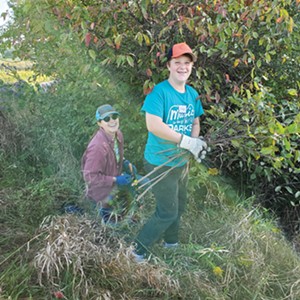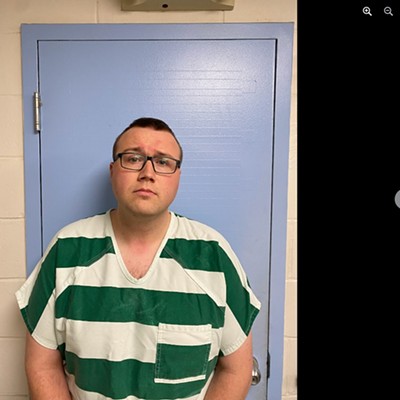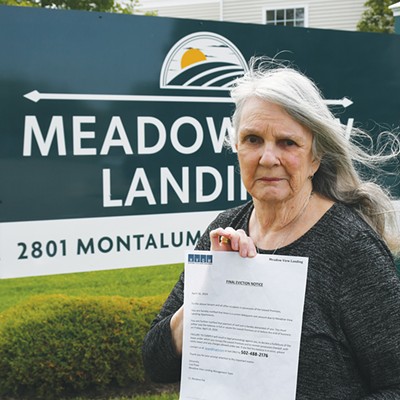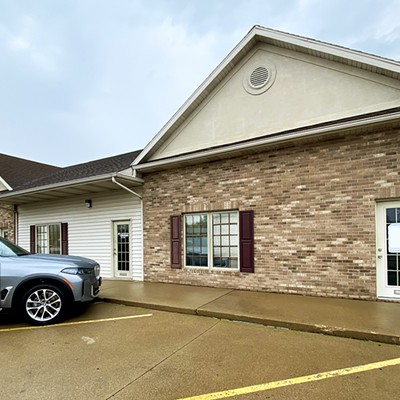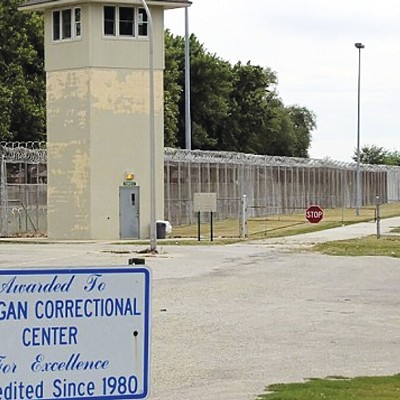In 2023, we celebrated the 60th anniversary of the Illinois Nature Preserves System. Sixty years ago, Illinois recognized the plight of our natural areas sooner than most states. Unlike out east, where most nature had already been fundamentally transformed, we still had high-quality remnant natural areas – unplowed and unpaved. Ecosystems of rare plants, animals, soil, fungi and microbes still survived. To preserve them, persistent advocacy led to the passage of legislation in 1963, creating the Illinois Nature Preserves System. This visionary model inspired similar efforts in dozens of U.S. states, and even countries across the globe.
As we wrap up the year, we can't help but think about what Illinois nature might look like when we celebrate the 100th anniversary. What if, in 2063, the everyday people of Illinois so appreciate our nature that it's hard to believe there was ever any question about the need to care for such important places? What if, by then, it is ludicrous to think that nature would ever have needed a law to protect it, because great numbers of people care for these wild and natural spaces, as these spaces inspire and care for us?
The farsighted Illinois Nature Preserves System is powerful because of two features put in place 60 years ago – legal dedication and multi-level partnerships. No single force could have done it alone. Illinois Nature Preserves are owned by dozens of agencies and individuals. They are protected in perpetuity, first because of landowners' decisions to dedicate these lands forever for the public benefit, and second by community support. As George Fell, founder of the Illinois Nature Preserves System, believed, it was essential to foster a grass-roots organization "that would have the size and strength to take its rightful place" in the broader culture.
We are amid a worldwide biodiversity crisis. While nature forms the web of life that we depend on for food, clean water, medicine, a stable climate, economic growth and more – nature and biodiversity are in critical danger. Large parts of the planet's natural communities, species and genetic richness are threatened. Stresses on nature – from invasive species and climate chaos to pollution and sprawl – mean that protecting our biodiversity requires a lot more care than the Nature Preserves System's founders ever imagined. Conserving and restoring natural areas and the biodiversity they contain is essential. Is there a needed force that is largely untapped?
There is also a crisis of loneliness, isolation and lack of connection in our country affecting our mental, physical and societal health. Lacking connection can increase the risk for premature death to levels comparable to daily smoking. This past May the Surgeon General offered a strategy to deal with this human crisis that includes cultivating cultures of connection. Can nature-minded groups be part of the solution?
We see the dual crisis of vanishing biodiversity and the loss of human connection as intertwined. Empowered volunteer communities have increasingly made life-and-death differences for nature throughout Illinois. They have great potential to do more, both because the ecological need is increasingly recognized, and because the people involved benefit as well. Working together with neighbors and friends to stop invasive species that crowd out diverse plants and animals, we save nature and at the same time share knowledge, eat snacks, plan and collaborate...in short, create a culture of connection. Stewardship fosters a healthy relationship with the land. In learning to care for it, new stewards come to value nature ever more deeply and become some of the best educators and advocates for biodiversity.
Illinois is poised to lead again in conservation. This is a time of growing awareness, growing local land trusts and other conservation organizations, and volunteer stewardship communities all focused on caring for Illinois' best nature. Yet we need more of these organizations and more collaboration among broader communities of people who are engaged in various ways: amateur botanists, birders, butterfly conservationists, natural gardeners, many types of citizen scientists, and "outdoors people" of all kinds. The number, power and sophistication of these nature-loving communities needs to grow exponentially.
The dual crisis of vanishing biodiversity and the loss of human community are a wake-up call that many of us are heeding. We are looking for places to spend time with other people, and we are looking for ways to save the planet. In my vision, at the 100th anniversary of the Illinois Nature Preserves System, there will be so many communities of steward-advocates across the state working, learning and caring for Illinois nature together, that we will laugh that anyone ever thought of destroying our natural heritage and that such a law was necessary 100 years ago.
If you are interested in getting involved with a community caring for Illinois nature, reach out to your local conservation organization, or contact me at [email protected].
Amy Doll is the director of Friends of Illinois Nature Preserves, an organization with a mission of supporting the Illinois Nature Preserves System. Prior to her role at Friends, Amy served as the executive director of the DeKalb Park District and has over 15 years of public lands and local government experience. Her parks and recreation background provides her with experience in connecting people to our state's natural areas. She lives in DeKalb and loves exploring the Nature Preserves throughout the state, especially with her two boys, aged 21 and 13.

